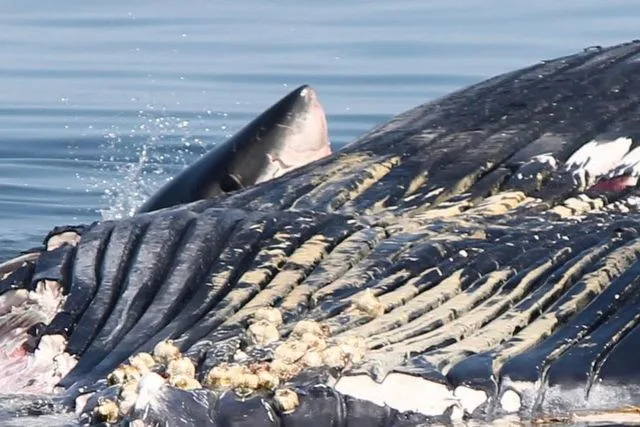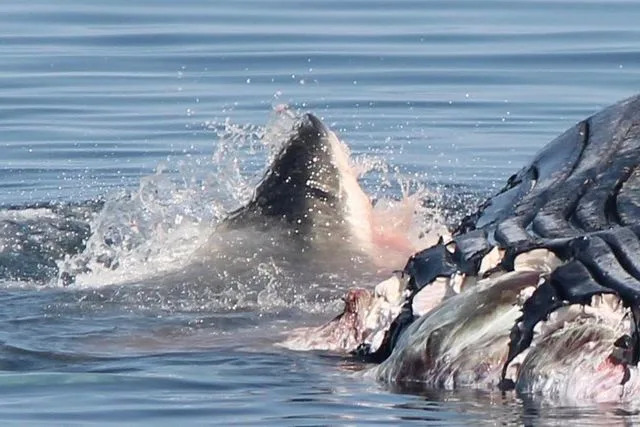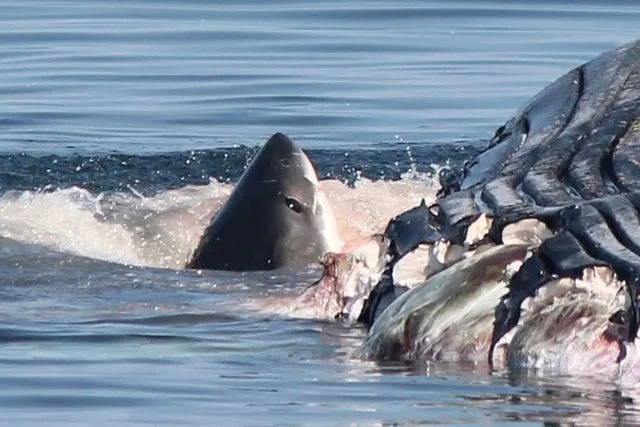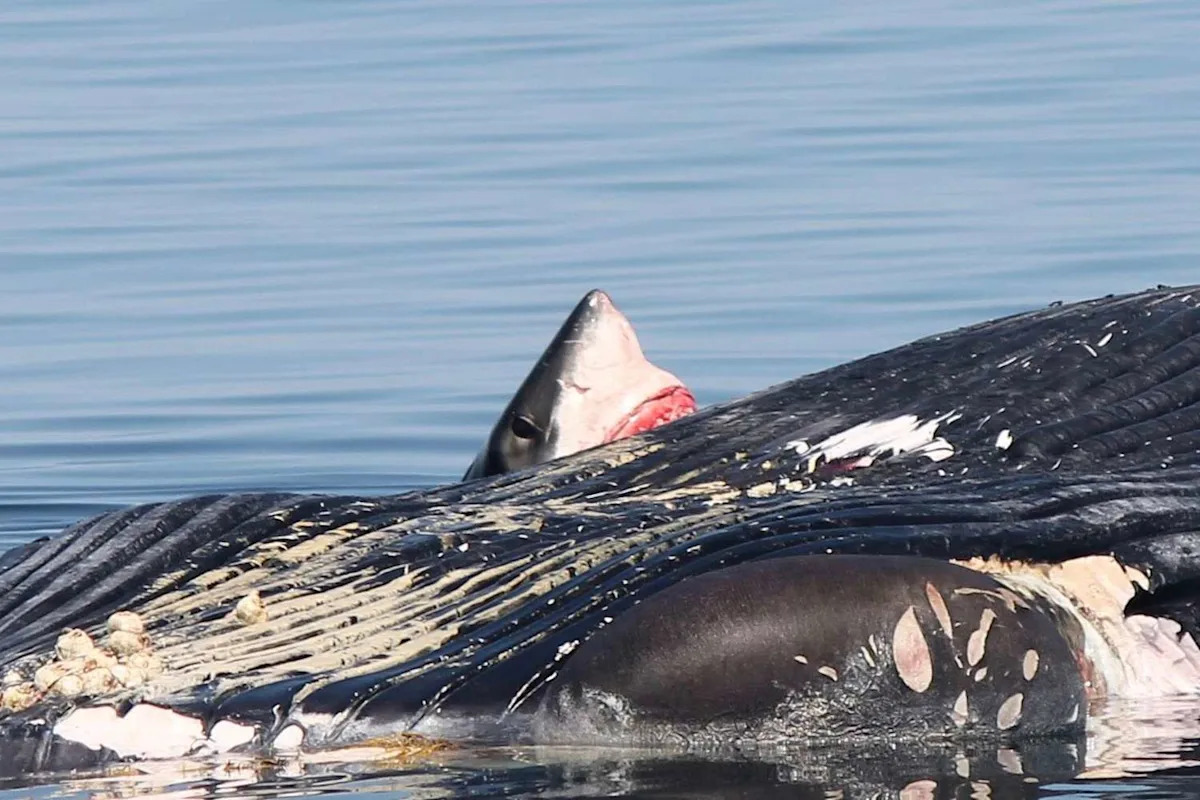NEED TO KNOW
A whale watching tour in Nova Scotia, Canada, saw a great white shark eating a whale carcass during a Sept. 2 excursion
It’s a rare sighting because sharks “don’t have to come to the surface to breathe,” a tour guide said
The boat tour guide also said she had “never seen a great white shark before in the wild” in her 30 years on the job
A Canadian whale-watching tour set out to see some massive sea mammals — and got an unexpected extra.
The group set out with Freeport Whale & Seabird Tours in Nova Scotia on Tuesday, Sept. 2, according to Canadian outlet Global News, which was first to report the news. During the tour, the group came across not just a whale carcass, but also a great white shark who’d made a rare excursion to the surface to feed on it.
The expedition followed shortly after the boat tour agency learned there was a “dead humpback whale floating up” in the Bay of Fundy, the company shared on Facebook. Before the shark sighting, some of the tour company’s staff approached the whale carcass, attempting to examine and photograph it to “explain what may have happened to it,” the company added.
Not seeing any “marks or lines” on the animal that may explain the whale’s death, one employee snapped a picture of the whale’s tail to hopefully “get an identity,” per the Facebook post.
Freeport Whale & Seabird Tours didn’t expect much more to happen with the carcass, until the company took a boat tour out on the water.

Freeport Whale & Seabird Tours/Facebook
A great white shark eating a whale carcass in the Bay of Fundy on Sept. 2, 2025
“Today on our afternoon tour, we came across the whale again,” Freeport Whale & Seabird Tours wrote on Facebook. And “this time,” the company said, “there was a great white shark feasting” on it.
Tour guide Amanda Crocker, who was the first mate on the boat tour, described the large fish as “aggressively” feeding on the carcass, per Global News. She also told the outlet that the passengers aboard the boat were about 40 to 50 feet away from the rare sight.
Photos shared by the Freeport-based company show the apex predator poking its head above water and baring its gums while eating the massive carcass. Another shows a splash of red — presumably whale blood — in the water amid the shark’s feast.
The shark — which was spotted about two miles offshore from Freeport, per Global News — was a rare sight not only for the tour customers, but also for the tour staff members. Crocker told the Canadian outlet that in her three decades on the job, she had not seen anything like it.

Freeport Whale & Seabird Tours/Facebook
A great white shark eating a whale carcass in the Bay of Fundy on Sept. 2, 2025
In fact, Crocker — who embarks on approximately 150 whale watching trips per summer — told Global News that prior to that Tuesday, she had “never seen a great white shark before in the wild.’ The tour guide had “only ever seen pictures and videos,” she said. “So it was really exciting to get to see this.”
“I was in shock for that half second,” the guide told Global News. “I’m thinking, ‘Am I really seeing what I think I’m seeing?'” Added Crocker: “We don’t often see shark(s) out there at all. Sharks don’t have to come to the surface to breathe.”
The fact that it was feeding was also a scarcely-seen sight, Crocker said, telling the outlet that “it’s very rare that we get to see many sharks to begin with, let alone a sight like this.”
Never miss a story — sign up for PEOPLE’s free daily newsletter to stay up-to-date on the best of what PEOPLE has to offer, from celebrity news to compelling human interest stories.

Freeport Whale & Seabird Tours/Facebook
A great white shark eating a whale carcass in the Bay of Fundy on Sept. 2, 2025
The “world’s largest known predatory fish,” the great white shark, is currently “vulnerable,” according to the World Wildlife Fund (WWF) — meaning the species is “considered to be facing a high risk of extinction in the wild.”
“Great white sharks are decreasing in numbers and are rare due to years of being hunted by man for fins and teeth, and often as a trophy for sport fishing,” per the WWF website. “The white shark is often caught as bycatch by commercial fisheries and can also become entangled in meshes that protect beaches.”
Given its vulnerable status, Crocker told Global News that “to see this with our own eyes was amazing.”
Read the original article on People

